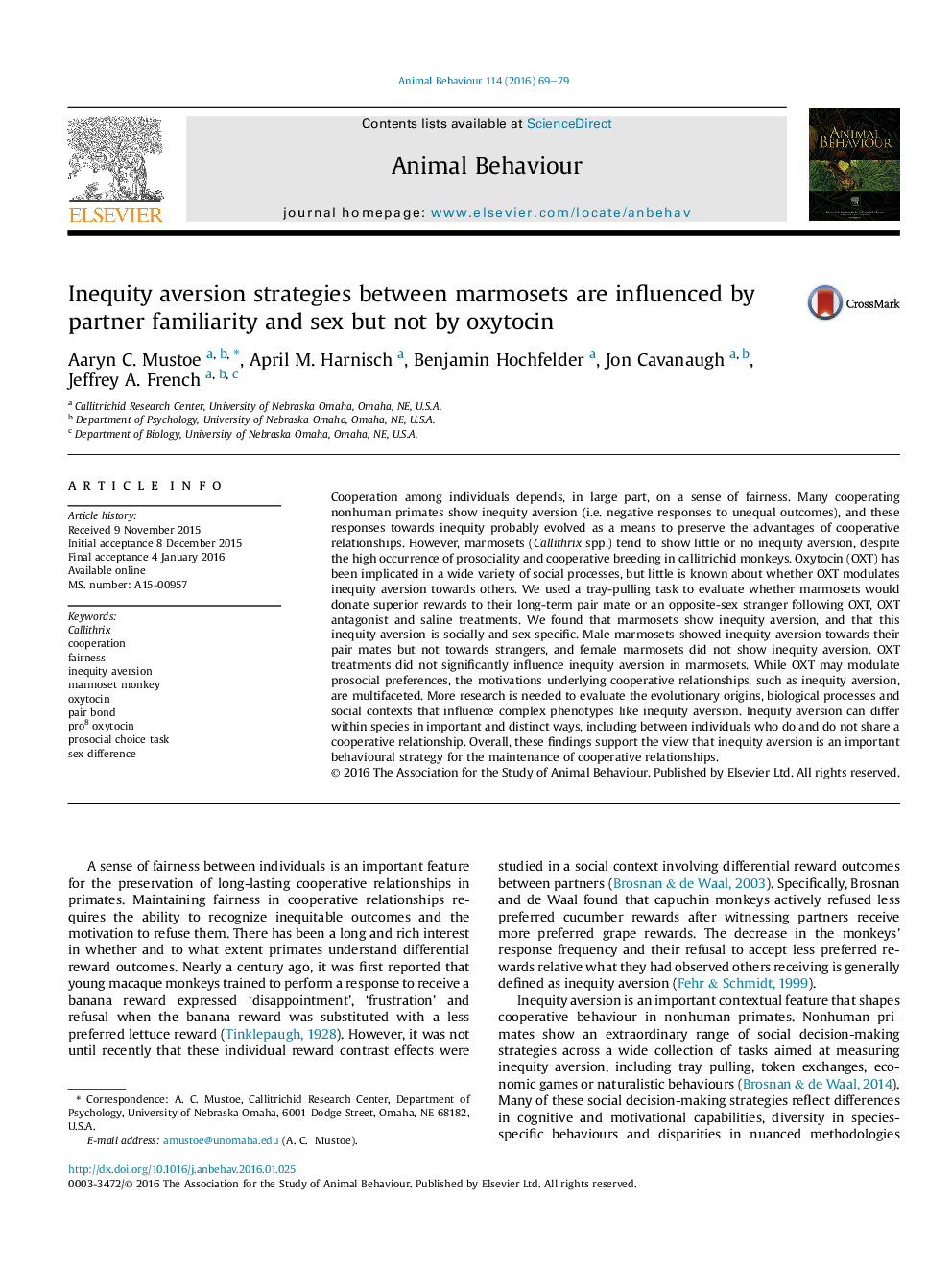| کد مقاله | کد نشریه | سال انتشار | مقاله انگلیسی | نسخه تمام متن |
|---|---|---|---|---|
| 8489173 | 1552214 | 2016 | 11 صفحه PDF | دانلود رایگان |
عنوان انگلیسی مقاله ISI
Inequity aversion strategies between marmosets are influenced by partner familiarity and sex but not by oxytocin
ترجمه فارسی عنوان
استراتژی های ناسازگاری بین مارموست ها تحت تأثیر آشنایی و شریک زندگی شریک زندگی قرار می گیرند، اما نه توسط اکسی توسین
دانلود مقاله + سفارش ترجمه
دانلود مقاله ISI انگلیسی
رایگان برای ایرانیان
کلمات کلیدی
موضوعات مرتبط
علوم زیستی و بیوفناوری
علوم کشاورزی و بیولوژیک
علوم دامی و جانورشناسی
چکیده انگلیسی
Cooperation among individuals depends, in large part, on a sense of fairness. Many cooperating nonhuman primates show inequity aversion (i.e. negative responses to unequal outcomes), and these responses towards inequity probably evolved as a means to preserve the advantages of cooperative relationships. However, marmosets (Callithrix spp.) tend to show little or no inequity aversion, despite the high occurrence of prosociality and cooperative breeding in callitrichid monkeys. Oxytocin (OXT) has been implicated in a wide variety of social processes, but little is known about whether OXT modulates inequity aversion towards others. We used a tray-pulling task to evaluate whether marmosets would donate superior rewards to their long-term pair mate or an opposite-sex stranger following OXT, OXT antagonist and saline treatments. We found that marmosets show inequity aversion, and that this inequity aversion is socially and sex specific. Male marmosets showed inequity aversion towards their pair mates but not towards strangers, and female marmosets did not show inequity aversion. OXT treatments did not significantly influence inequity aversion in marmosets. While OXT may modulate prosocial preferences, the motivations underlying cooperative relationships, such as inequity aversion, are multifaceted. More research is needed to evaluate the evolutionary origins, biological processes and social contexts that influence complex phenotypes like inequity aversion. Inequity aversion can differ within species in important and distinct ways, including between individuals who do and do not share a cooperative relationship. Overall, these findings support the view that inequity aversion is an important behavioural strategy for the maintenance of cooperative relationships.
ناشر
Database: Elsevier - ScienceDirect (ساینس دایرکت)
Journal: Animal Behaviour - Volume 114, April 2016, Pages 69-79
Journal: Animal Behaviour - Volume 114, April 2016, Pages 69-79
نویسندگان
Aaryn C. Mustoe, April M. Harnisch, Benjamin Hochfelder, Jon Cavanaugh, Jeffrey A. French,
